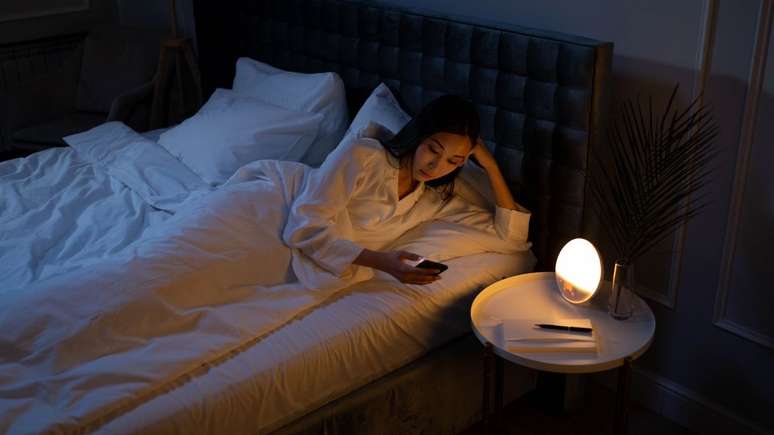The awakening at 3 in the morning could have more to do with biology than with spirituality; understand
If you have already woke up in the middle of the morning without knowing why, especially around 3 in the morning, know that this is more common than it seems. And no, it is not always a sign of something spiritual or mysterious. Most of the time, it is explained by science.
Studies in the areas of neuroscience, sleep psychology and chronobiology show that awakening at this moment is related to hormonal oscillations, anxiety, models inherited from our ancestors and even body temperature.
What happens to the body at dawn?
Our sleep is not linear. It happens in cycles from 90 to 110 minutes, alternating between light, deep and Rem. Right around 3 in the morning, most people enter a lighter phase, which makes it easier to wake up, especially if there is a sensory factor (noise, cold, anxiety, light, among others).
In addition, this is the moment when the body begins to prepare to wake up. Cortisol, known as stress hormone, begins to climb naturally, even if we are sleeping. In anxious or hormonal imbalances, this increase may be enough to cause early awakening.
The influence of the temperature
Another small spoken point is that, during deep sleep, body temperature drops to preserve energy – and between 2h and 4 hours in the morning, it reaches the lowest point. For some people, this can cause discomfort, especially if the environment is too cold or the bed linen is inadequate.
Anxiety also comes into play. Those who live periods of intense concern or emotional tension can wake up with the accelerated mind, ruminant thoughts, anticipating tasks or reliving conflicts. This type of insomnia is characterized by frequent night awakenings, even when the person falls asleep easily.
When to worry?
The awakening from time to time around 3 in the morning is considered normal. But if this is repeated frequently and affects your well -being during the day, it can be a sign of chronic insomnia, night apnea or hormonal changes, for example. Be aware of symptoms such as fatigue, drowsiness, irritability and fall of concentration. If necessary, see a specialized doctor.
How to improve sleep quality?
Take a look at some practical tips that help prevent night microdesters:
- Take care of the night routine: Avoid caffeine and alcohol at night; Turn off the screens at least an hour before going to bed; Set fixed times to sleep and wake up;
- Create a favorable environment to rest: Leave the dark bedroom, quiet and fresh; Use curtains blackout o asleep mask; Choose the comfortable bed linen;
- Techniques that calm down: Practice deep breathing, meditation or light stretching; If you wake up, get up for a few minutes and do something relaxing (like reading).
One night well strengthens memory, immunity, emotional balance and hormonal health. On the other hand, the nights interrupted or poorly used, when frequent, can increase the risk of cardiovascular diseases, diabetes, anxiety and even depression.
Source: Terra
Ben Stock is a lifestyle journalist and author at Gossipify. He writes about topics such as health, wellness, travel, food and home decor. He provides practical advice and inspiration to improve well-being, keeps readers up to date with latest lifestyle news and trends, known for his engaging writing style, in-depth analysis and unique perspectives.





![A more beautiful life in advance [SPOILERS] A more beautiful life in advance [SPOILERS]](https://fr.web.img2.acsta.net/img/90/2d/902d777a1341c7bc0507675575d75b53.jpg)



